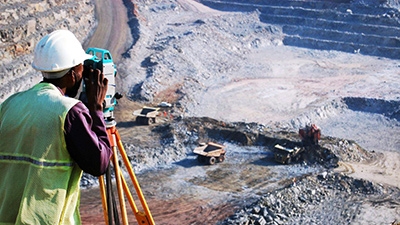“Having mineral wealth does not have to be a curse, as some claim,” McMahon said. “In the 21st century, the mining sector has been shown to make important contributions to development in many low and middle income countries.”
The study found that mineral wealth not only propelled economic growth, but it also translated into larger improvements in human development in these same mineral-rich countries, more so than in similar non-mining countries. Since the global financial crisis in 2008, of the low and low-middle income countries, only mineral-dependent countries posted higher human development improvement rates than the world average. Low-income mineral dependent countries scored substantially higher than non-mining countries. For example, the Human Development Index (HDI) health index increased at a 50% faster rate among mining low- and low-middle income countries than among their non-mining counterparts in 2007-2012.
How did mining contribute to these improvements in human development? Anecdotal evidence suggests that expenditure on health and education in mineral-rich countries increased at least proportionately with income rises, leading to large gains in various well-being measures. Preliminary observations show that the overall contribution of mining was found to be stronger where there were infrastructure benefits and strong linkages to other industries, especially through domestic procurement. In addition, where higher levels of fiscal revenues were used to build infrastructure and develop human capital, this in turn has been shown to lead to the development or expansion of other non-mining related industries.
Chile, for instance, in the 1990s set up cooperative programs between the public and private sectors to increase the capacity of domestic firms to produce quality inputs for mining operations. From a modest beginning, Chile has become a regional supplier of mining goods and services, with this relatively new industry employing about 10 percent of that country’s workforce—720,000 jobs—in 2011.
Of course, sustaining the progress revealed in this study may prove challenging. It remains to be seen how these countries’ economies would react to a major downturn in mineral prices, or whether or not mineral-rich countries can reduce their reliance on the mining sector over time.
This research suggests that mineral wealth does not have to be a curse, it can even be a blessing, provided measures are taken to transform it into sustainable development. Towards that end, the World Bank Extractive Industries team helps countries strengthen their institutional framework and governance structures so that they can manage the complex nature of the extractive industries. The Extractive Industries Sourcebook is a resource developed by the World Bank that guides stakeholders through the complex issues inherent in oil, gas and mining projects. To seize the opportunity extractives offer for ending poverty and boosting shared prosperity, the appropriate structures must be in place to manage the large revenue inflows in a responsible and transparent manner.


